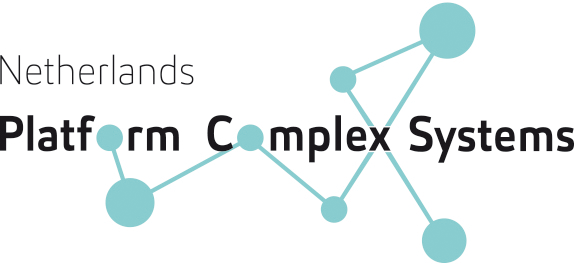News
Benefits from complexity in practice-governance and policy: the added value of a complex systems approach for industry and society
Date: 7 March 2018
Time: 15:30 – 18:00
Location: UvA Institute for Advanced Study, Oude Turfmarkt 147, 1012 GC Amsterdam
Programme: NPCS meeting “Benefits from complexity in practice-governance and policy” (in Dutch and English)
The science of complex systems is a fairly new domain, but nonetheless our insights are steadily growing. How can we benefit for governance and policy making?
Last year the OECD published a report “Complexity and Policy making”. The introduction already deflates the expectation that it might answer the many questions that policymakers and public and private leaders encounter in practice. In particular, Secretary General Angel Gurría states: “An important question remains:” How can complex law be applied to assist policy makers as they tackle problems in areas such as environmental protection, financial regulation, sustainability or urban development?”
These and other questions about the applicability of complex systems research in practice can best be formulated and answered jointly by complexity researchers and practitioners. Therefore, the Societal Committee of NPCS organizes a series of meetings around the theme “Benefits from complexity in practice”.
The first meeting took place on March 7 and focused on governance and policy making. During thisfirst interactive meeting Roland Kupers has set the scene by showing how complex systems insights can lead to new options for policy making in practice, based on his book with David Colander (Princeton University Press 2014) and his extensive practice in the public and private sector:
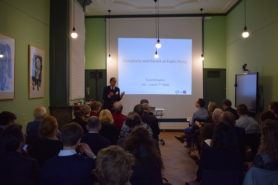
After this presentation, the participants discussed in four groups several policy and governance issues, such as:
- “Governance of complex systems”: Can complex systems be steered in a given direction? Can simulation and modelling help providing insight into the behaviour of this systems?
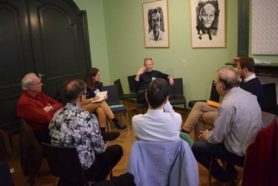
- “ Viral network policy”: the use of the complexity perspective, including network analysis, to improve the way companies and (local) governments communicate with and may influence behavior of their target group.
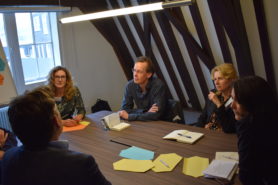
- “Multi-problem households in the Netherlands”: coping with the complexity of multi-problem households and multi-stakeholder decision making.

- “Language”: Language is a crucial factor in grasping complexity. It is more than words, however, and images and creativity also have a role to play. Once people grasp the idea of complexity, a more structured (scientific) language is a crucial ingredient.
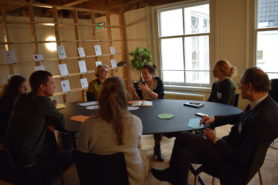
The meeting closed with informal drinks providing the opportunity for further networking.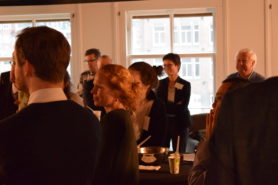
Next meeting in the series
The next meeting will take place at the end of 2018 or beginning 2019.
